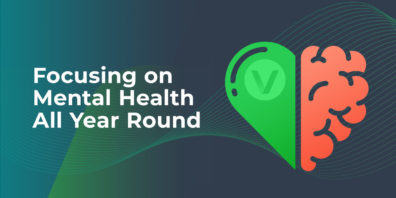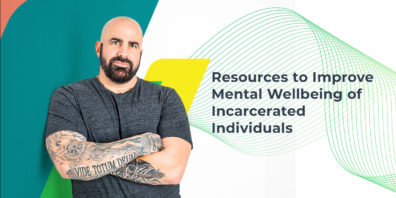Taking Care of Mental Health this Valentine’s Day
février 12, 2021
The past year was a rocky one. With so many changes and so much uncertainty, many people faced crises involving their emotional and mental health.
Valentine’s Day is a time to reflect on everything that you have and everyone that you love. The following articles provide ways to improve the mental and emotional wellbeing for you, your family, and your incarcerated loved ones even when a pandemic continues to keep you apart.
Helping Yourself
Family Doctor. “Mental Health. Keeping Your Emotional Health.”
Emotional health affects everything you do, from being able to work productively to coping with the stresses of everyday life. There are many ways in which you can maintain or improve your emotional health, including managing stress, thinking before you act, expressing your feelings in appropriate ways, and taking care of your physical health.
Many variables affect your emotional health and by keeping these in check, you can have a more stable and upbeat mood. This includes keeping active, eating regularly, drinking sensibly, asking for help, doing things you enjoy, and learning to take time to relax.
Helping your Incarcerated Loved One
Prison Connect. “Helping Your Inmate Stay Healthy: Mental Health.”
Regular communication, including phone calls, visits, and messages can provide encouragement to incarcerated individuals and boost their mental health. By talking, asking questions, and encouraging your incarcerated loved one to give input about decisions at home, you are empowering them and downplaying the helpless feelings that may be affecting their mental health.
P.S. I Love You, “7 Ways to Help Your Loved One in Prison”
Supporting a friend or family member in prison feels difficult, but there are many easy ways to show your support, most of which involve keeping in frequent contact. Send photos from home, remember birthdays and special anniversaries, and discuss what each of you is feeling during this period of separation.
Helping Children & Teenagers
Lesley University. “Loved One Locked Up: Supporting a Child with Incarcerated Parents.”
Children have a difficult transition when a parent becomes incarcerated, which impacts their mental health and causes anger, aggression, anxiety, and depression. Explaining the incarceration process, allowing the child to express their emotions, providing feedback, and allowing the child to remain in contact with the incarcerated parent are all ways in which you can help a child whose parent is incarcerated.
Sesame Street, « Coping with Incarceration »
From describing what incarceration is to discussing the visitation process, having an incarcerated parent can be overwhelming for both children and caregivers. Conversations can be difficult, but parents and guardians can help guide children through these difficult moments with love and support.
ConnectNetwork, 7 Helpful Programs for Children of Incarcerated Parents
1 in 28 children have a parent that is incarcerated. There are many resources available to help lessen the trauma faced by children in this situation. Provided by nonprofit organizations, the government, and local communities, these resources focus on the unique social and emotional needs of children.
It is important to take care of your mental and emotional wellbeing, especially when dealing with the incarceration of a loved one. Communicating your thoughts and feelings is an important part of the process for everyone involved. With the communication services that ConnectNetwork offers, it is easy to keep in touch and lift your and your incarcerated loved one’s spirits this Valentine’s Day and every other day of the year.
Still have suggestions?
Please keep your inputs coming. We value your feedback! Give Feeback
The information provided in this article is intended for your general knowledge only and is not a substitute for professional medical advice or treatment for specific medical conditions. Please consult your healthcare provider with any questions or concerns you may have if you are experiencing depression or any other medical condition.
GTL does not control or take responsibility for the content or information on any external website not managed by GTL.
Posted In: Blog



